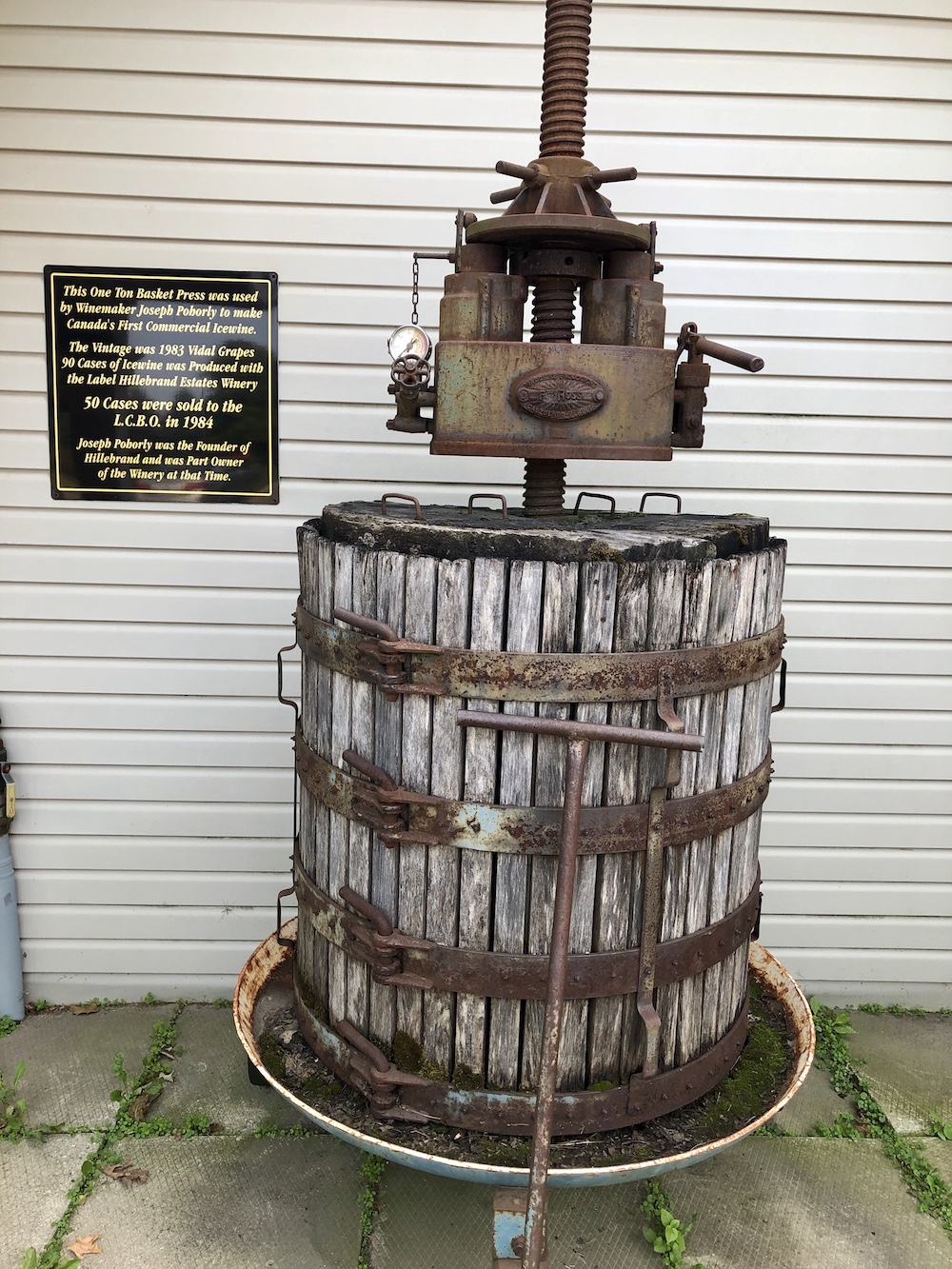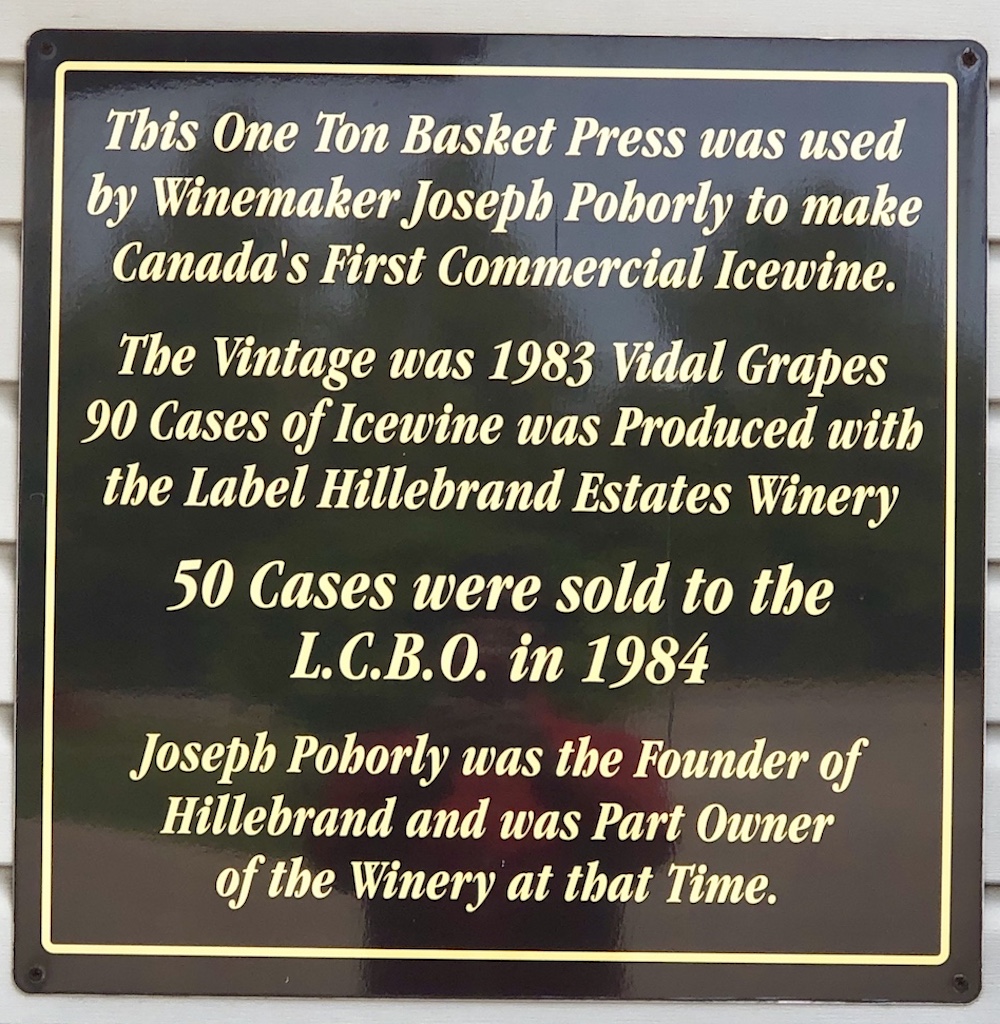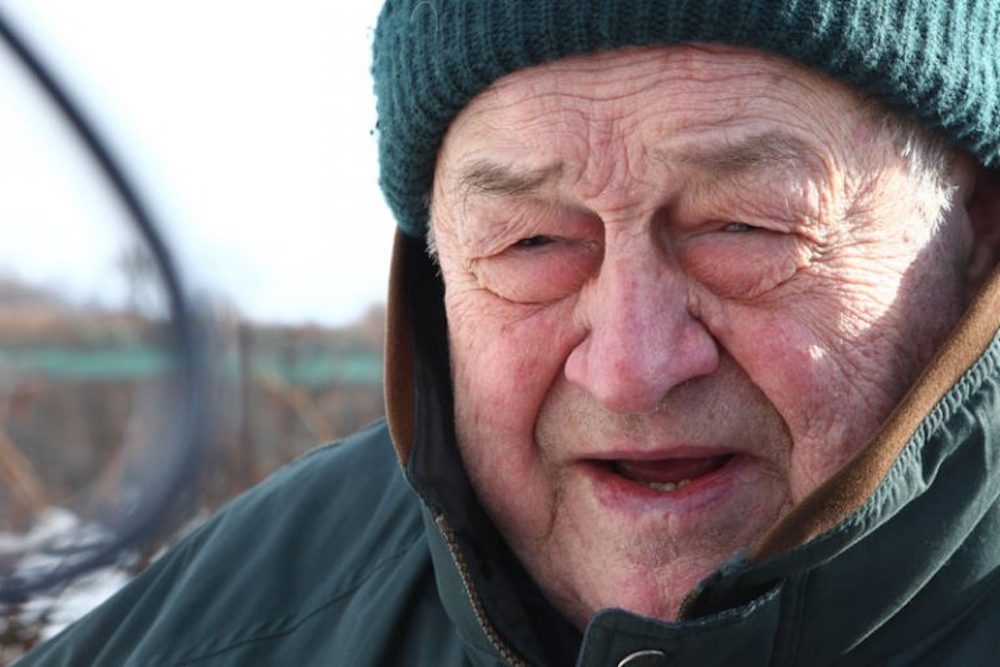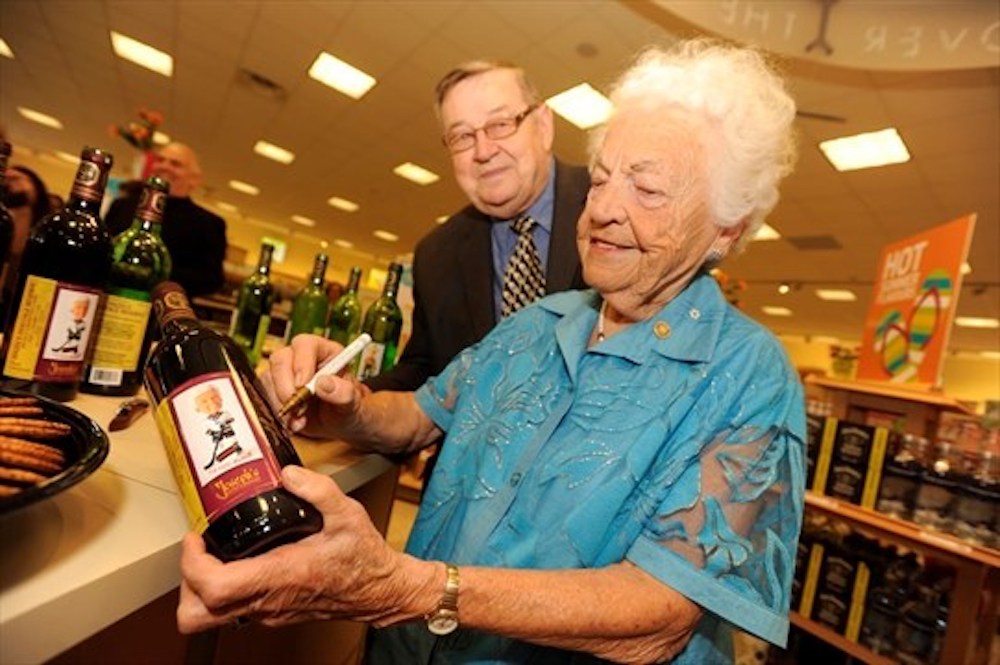By Rick VanSickle
Anyone who has visited Joseph’s Estate Wines in Niagara-on-the-lake is reminded of the legend that is Dr. Joseph Pohorly.
At the entrance to the winery on Niagara Stone Road stands a well-weathered old grape press with a plaque that reads: “This One Ton Basket Press was used by Winemaker Joseph Pohorly to make Canada’s First Commercial Icewine.”
Pohorly passed away peacefully on Sept. 12 at the age of 88.
He also founded Newark Wines in 1979, which became Hillebrand Estate Wines in 1983 (now Trius, owned by the Peller family).


Newark Winery in the Village of Virgil was one of the three original cottage wineries that opened in Niagara in the 1970s and laid the foundation for the growth of the new Ontario wine industry. Joseph himself was no stranger to wines. Born in Vineland, he began life as a farmer’s son and learned how to grow grapes and other fruit crops from an early age, gaining an appreciation and knowledge of the land, the geography and climate, and of the unique characteristics that make the Niagara viticultural area special.
In 1983, Joseph made the first icewine for Hillebrand and, in the process, became one of the early Canadian icewine pioneers. He made 90 cases of icewine from Vidal, of which 50 cases were sold to the LCBO in 1984.
Whether the 1983 Vidal icewine Pohorly made was actually “Canada’s first commercial icewine” is up for debate.
The Canadian Encyclopedia maintains it was British Columbia that was the first region to produce this sweet dessert wine in Canada. In his book, Icewine: The Complete Story, John Schreiner recounts how the late Walter Hainle made his first icewine in Peachland from Okanagan riesling in 1973 — 40 litres in all. “It became an annual tradition,” wrote Schreiner. “In 1988 when the Hainle Vineyards winery opened … the vintages for sale included 256 bottles of 1978 icewine.”

But Pohorly was certainly among the first in Ontario, along with Walter Strehn at Pelee Island Winery and Donald Ziraldo and Karl Kaiser at Inniskillin.
After selling Hillebrand Estate Wines, Pohorly went into partnership to start the Colonel Butler Inn, which he ran for 10 years and then sold to go back to his real passion of winemaking and founded Joseph Estates Wines in 1996.
Pohorly also established Joseph’s Natural Products after he received his PhD in Environmental Engineering in 2002. In 2003, Joseph won the Regional Innovation Award for Sustainable Development/Ontario Region, presented by the National Research Council of Canada Industrial Research Program and the Canadian Manufacturers & Exporters.
In 2004, Pohorly earned the Christopher Newton Award for Extraordinary Vision in Business, awarded to the Niagara-on-the-Lake Businessperson of the Year.
Pohorly received the Niagara Agricultural Lifetime Achievement Award for his many achievements in 2018.
The year 2002 was an exciting one for Pohorly. He earned a PhD from Columbus University in the U.S., the result of his research into the health benefits of grape seed oil.
The following year, Pohorly launched a new product line that reflected this research, and his interest in health and wellness.
While on vacation in Florida in 1998, winemaker and winery owner Pohorly saw something that literally planted the seeds for a new idea. On the shelf of a small winery sat several bottles of imported grape seed oil from Italy. Curious about this grape-related product, Pohorly began to research it and discovered some amazing things.

Grape seed oil is made from pomace, the waste left in the grape press during the winemaking process after the pressing cycle. Every year in Niagara, thousands of tonnes of pomace is thrown out or put back on the vineyard land for compost. But the oil obtained from a further dehydration and pressing process is rich in nutrients, especially antioxidants and fatty acids like linoleic acid.
The nutritional components in grape seed oil provide a variety of healthy benefits, one of the most important being their ability to slow down and reverse free radical damage and reduce the risk of disease – especially heart disease – and slow skin aging. Grape seed oil is a powerful antioxidant, 50 times more potent than Vitamin E and 20 times more effective than Vitamin C in destroying these free radicals, harmful molecules that roam the body and damage cells.
Other studies show that certain components in grape seed oil can help protect the body from sun damage, improve vision, improve flexibility in joints, arteries and body tissue, improve blood circulation and reduce allergic and asthmatic symptoms by inhibiting the formation of histamines.
Pohorly knew he was on to something and for the next few years, he continued his research at the winery and at the University of Guelph in Canada.
Today, scientists around the world continue to discover and document the healing powers of grape seed oil.
In a recent Facebook post, Pohorly’s nephew Michael Pohorly, memorialized him, saying, “He was an inspiration to me as a shining example of pursuing a life where all kinds of endeavours and interests are possible and a reminder that no matter what our age — our lives can be lived fully and we can enjoy every moment and never stop learning and challenging ourselves.”
In addition to a private funeral for family only, there will be a public celebration of his life on Sept. 20, at St. Davids Lions Club in Niagara-on-the-Lake, from 1 p.m. to 4 p.m.
A public celebration of Pohorly’s life will take place on Sunday from 1 to 4 p.m. at the St. Davids Lions Club on York Road.





We loved Joseph. He was a wonderful human being that we both will never forget meeting in our many travels across this region. A true vintner and gentleman.
It is debatable as to who made the first commercial ice wine in Canada.